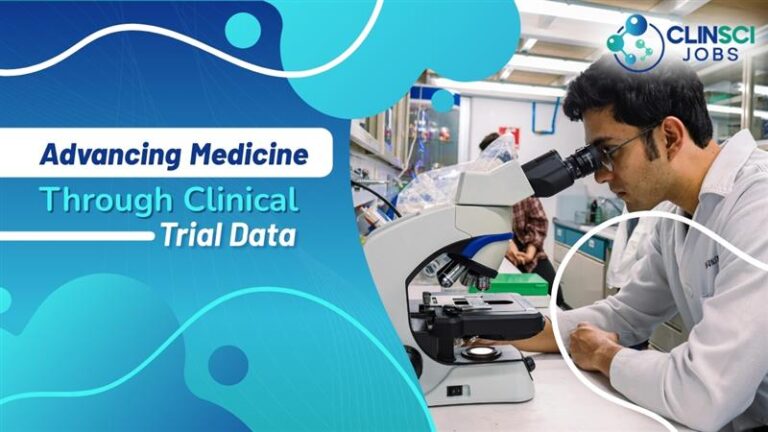Table of contents ▸
Genomic medicine represents the forefront of innovation in healthcare. The clinical scientist is at the heart of advancing this transforming field. A better understanding of the complexities of the human genome opens the floodgates to exponentially more effective and personalized treatments. Instead of being advanced at the clinical level by the scientists who have expertise in genomics, data analysis, and research, it’s led by them.
The Clinical Scientists who pioneer breakthroughs in Genomic Medicine sit at the cutting edge of a shining new future for healthcare for patients and practitioners.
But what, then, is Genomic Medicine?
Genomic medicine is actually the use of genetic information for guiding medical decision-making. It is examining DNA within a human body to ascertain possible mutations or predispositions that could cause an illness. With this knowledge, providers can better tailor treatment by selecting medicines that will probably work according to the genetic makeup of the patient and predict diseases before they actually occur.
One of the most interesting applications of genomic medicine is how it can revolutionize the approach to diseases like cancer, diabetes, or heart conditions. Targeted treatments at the genetic level may effectively manage diseases, prevent their progression, or offer cures hitherto unimaginable.
Clinical scientists play a very important role in the advancement of genomic medicine. They act as the interface between research and practical applications, making sure that findings in genomics translate into improvements in patient care.
Role of Clinical Scientists in Genomic Medicine

Clinical scientists in genomic medicine are involved in a series of critical tasks. This will include genomic research, analysis of genetic data development of diagnostic tools, and the oversight of clinical trials; their expertise would be absolutely crucial in the integration of genomics into healthcare.
Conducting pioneer research
Among these active contributors in advanced research areas for clinical scientists includes knowing the role of genetics during disease progression, progression, and development. Apart from sequencing genomes and discovering mutations found to be genetic, contributions such mutations make to diseases also are studied. In that sense, research is also a basis for knowledge underlying complex diseases, particularly in rare genetic diseases, or multifactorial disorders including cancer.
Now that clinical scientists are discovering genetic markers, they can sense when the disease starts or even if the patient responds to specific treatments. This forms the basis of personalized medicine. From their findings, new targeted therapies are formulated and can then be tailored to patients’ genetic profiles.
Data Analysis and Interpretation
The most important part of genomic medicine is the capability to analyze very large amounts of genetic information. This is achieved because clinical scientists use sophisticated computationally enabled tools to unravel the meaning in genetic sequences; it aids in identifying specifically what the genetic mutations are and helps researchers arrive at strategies for treatment designed to individual specifications.
Raw data doesn’t exist in genomic medicine but rather a map that assists medical decisions. Clinical scientists therefore play a role in interpreting this complex genetic information to the physicians, hence making well-informed decisions that subsequently lead to better patient results.
Creating New Diagnostic Tools
Genomic medicine must also be about prevention-about early diagnosis.
Part of the effort to construct clinical science means building clinical diagnostics that detect genetic features of disease, potentially even at stages before people exhibit disease symptoms. Indeed, many medical conditions, most notably probably cancer, lend themselves particularly well to diagnosis before symptoms start, which would have been considered impossible decades ago.
Genomic profiling tests by clinical scientists are developed in screening for genetic risk factors, hence patients are being provided with the actionable information to prevent or control diseases in a better manner. These diagnostic tools revolutionized preventive medicine so making healthcare more proactive rather than reactive.
Impact of Genomic Medicine on Healthcare

Genomic medicine will change healthcare in ways that were heretofore impossible. Building on genetic information, it is through clinical science research that the field of precision medicine is being advanced because treatments are tailored to the genetic makeup of each individual.
Personalized Plans of Treatment
Genomic medicine is perhaps the most impactful when treatment plans are personalized. Through knowledge of a patient’s genetic profile, healthcare providers can pick the best medication and therapy to administer. The personalized approach tends to avoid trial-and-error situations associated with conventional treatments, thereby achieving better results with fewer side effects.
For example, clinical scientists in the field of treating cancer are currently assisting in finding genetic mutations in the cancer cells that cause the cells to be easily susceptible to some drugs, which results in targeted therapy and consequently reduces harm to the health cells, increasing the response to treatment.
Preventive Medicine
Genomic medicine will prevent these diseases before they occur in the body. Genetic predisposition to heart disease, diabetes, or other cancers can now be made known to clinical scientists; they should inform the patient so appropriate lifestyle changes and early intervention can be made, thereby pushing back or avoiding diseases.
The shift from reactive to proactive health care is one of the most exciting aspects of genomic medicine, and clinical scientists are right at the cutting edge of that change.
Improved Patient Outcomes
Advancements in genomic medicine have clinical scientists improving the outcome for the patient: finding the most appropriate therapy in light of a patient’s genetics allows for a quicker recovery and less likely complications as well as more favorable long-term health outcomes.
For the rarest of genetic disorders, genomic medicine provides a hope of treatments that may not have been available for them before. Clinical scientists are very essential in driving these therapies to help patients with complex genetic conditions receive the best care.
This would further increase the need for clinical scientists in this field since the scope of genomic medicine is likely to be growing. Advancements in gene editing, personalized therapies, and early detection methods may significantly change the way healthcare operates.
Clinical scientists are already researching and developing next-generation genomic technologies, such as gene editing using CRISPR. It may eventually provide the ability to cure genetic diseases by correcting mutations at the DNA level. With the development of these technologies, we expect the future of genomic medicine to hold even more tremendous breakthroughs that will reshape healthcare practices.
Conclusion
They play a vital role in making a future where genomic medicine helps advance a revolution in the understanding and treatment of diseases. The scientific work of clinical scientists advances genomics, develops new diagnostic tools, and conducts analysis of data that could potentially be useful for creating a future in which precision and personalized medicine will be the norm. And this is just the beginning because, as the field keeps changing, so will healthcare innovation through genomics, with clinical scientists at the core.
Follow us on Social Media: LinkedIn | Facebook | Twitter | Instagram












